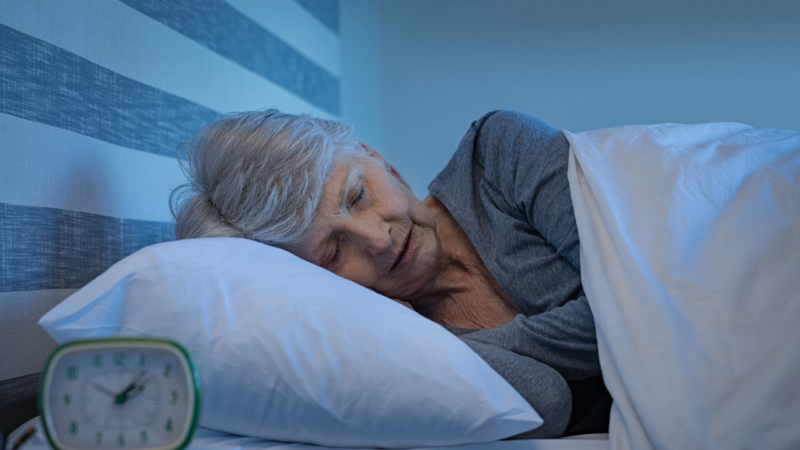“Sleep is the best meditation” – Dalai Lama
Wouldn’t we all love to say that we’ve had a good night’s sleep? Wouldn’t it be amazing if we could lay our heads on our pillows and fall instantly into blissful, uninterrupted sleep, every night?
Sadly, this is far from reality for most of us. Getting a good night’s sleep is one of the most governing factors to how well we operate the next day.
A lousy sleep can affect your mood, your energy levels and your brain and body functions. Rest encourages restoration of the body and renewal of cells, leading to recovery from the day that’s been and preparation for the day ahead.
A well-rested person has better control of their moods, will find it easier to manage stress and have the energy to lead an active lifestyle.
When people talk about poor sleep, they are generally referring to interrupted sleep or difficulty falling asleep, which doesn’t allow the body to get the restoration and preparation that it needs.
Stressful events
There are many factors that can contribute to poor sleep. Some may be beyond your control, like an illness or injury. Some factors may be periodic, like stressful events in your life that make it hard for you to relax and rest. And some factors, may be momentary in the night, like a sudden temperature change in the room that affects your comfort and wakes you in the early hours of the morning.
However, getting a perfect night’s sleep every night is just not realistic – life is always going to have ups and downs.
But did you know that there are some small things you can do to maximise your chances of getting a good night’s sleep?
Why not give your sleep a little boost in the right direction with a few small changes – some of these things you might even already be doing! Keep reading for a rundown on seven small things you can add to your ‘amazing sleep’ tool kit.

1. Stick to a consistent sleep schedule
Just like babies and children, adults sleep better if they have a consistent bedtime.
Occasionally you might have a late or early night, but generally, have a set bedtime and stick to it. Most people thrive off routine and rhythm, and giving your body and mind predictability in how much sleep it is going to get and when, will help the body become naturally inclined to dip in energy levels when it is time to sleep, making it easier for you to fall asleep.
2. Be mindful of what you eat and drink (limit caffeine late in the day)
Digestion is a major bodily process, so you don’t want to be going straight to sleep on a full stomach.
Giving yourself time to digest prior to laying down is important to being able to fall asleep comfortably. A healthy, balanced diet that is not too high in sugar, salt or processed foods can help keep any digestive irritation away.
Limiting coffee and tea later in the day is also important to ensure that the caffeine that is present in these drinks is not having a stimulating effect on the body as you try to fall asleep.
3. Create a restful sleep environment
A dark and quiet room, at a comfortable temperature, which is a designated place of rest, can help to promote a good night’s sleep.
Try not to do too much else in your sleep environment – TV’s and computers are not recommended to be in the room in which you sleep.
You drop into a state of unconsciousness when you sleep, but your body is performing important tasks as you rest. You don’t want the environment around you, such as noise or light, to interfere with these processes, hence ensuring a restful sleep environment can help you get a better night’s sleep.
Also, check that your pillow and mattress are comfortable and are allowing you to relax your body for a good night’s rest.
4. Reduce blue light exposure
Technology these days is literally keeping us awake – the internet is so readily available, so entertainment or distraction can always be found, no matter what time of the night it is.
Blue light is emitted from devices like computer screens, TV screens and mobile phones as well as energy efficient lighting. Studies have shown that blue light can suppress the production of melatonin – a hormone that helps to regulate sleep cycles.
At least 30 minutes before bed, switch to dim lighting where possible, turn off screens and don’t use your mobile phone in bed! If you must use screens before bed, try and utilise a blue light filter, which is a setting that can be found on most devices.
This is a small way you can help to reduce your exposure to blue light when it’s approaching bed time.
5. Exercise regularly
It is no secret that if you expend energy and are active during the day, that you sleep better at night.
Exercising regularly is one small key to the best sleep ever puzzle! Having a routine such as a walk in the morning and then dedicated sessions during the week, where you commit to strengthening or stretching the body, can do wonders for your sleep (not to mention the multitude of other benefits regular exercise brings).
Try and make a habit of exercising regularly, but not too close to bedtime.
6. Have a wind down routine
The wind down routine is a great way to help the body get into a relaxed state and prepare for rest.

A wind down routine does not need to be long or complicated! You likely already have a bit of routine where you brush your teeth, put on your pajamas and grab a glass of water before bed.
Have a think about what you do before bed and you might want to add a couple of small things to this routine if you find it lacks the ‘wind down’ element. Things you can add to your wind down routine could include 2 minutes of quiet meditation, reading a chapter of a book or listening to some relaxing music for 5 minutes.
7. Relax and clear your mind
Take a bath, read a book, meditate – these are some of the things you can do to help clear the mind before sleep.
Carrying stress or anxiety to bed will undoubtedly affect your sleep. We all have worries from time to time and occasional stress is a normal part of our lives, but try to remember that without a good night’s sleep, that stress and anxiety can be made worse.
If you find you are not able to fall asleep due to feeling worried about something, and you find yourself lying in bed awake for more than 20 minutes, get up and do a quiet activity for a few minutes, then try again to go to sleep.
Lying in bed awake, stressing about being unable to fall asleep, can actually make it harder for you to fall asleep! So get up, reset, then try again.
Don’t underestimate how powerful a good night’s sleep can be on how well you feel during the day. Give these small things a try and may your nights be full of amazing sleep.
____________________
The Physio Co helps Aussie seniors to move more, with confidence! How can we help you (or your elderly Mum or Dad?) Contact us today on 1300 797 793 and speak with Nancy, Julia and Jess from the TPC Client Care team to discuss your situation. If they’re busy on other calls, leave a message and someone from the team will call you back for a chat! Alternatively you can email us via [email protected]

Article written by Kathy Soo, TPC Physiotherapist



 1300 797 793
1300 797 793